USEFUL
INFORMATION
THE ENCLOSED INFORMATION IS PROVIDED FOR FAQ’S IN REGARDS TO THE IMPORTATION OF THE FOLLOWING ARTICLES IN REGARDS TO AN INTERNATIONAL HOUSEHOLD GOODS MOVE DESTINED FOR THE UNITED STATES (CONUS ONLY):
ALCOHOL


ALCOHOL
The importation of alcohol is governed by both Federal and state laws. In general the Federal Government allows a reasonable amount of alcohol to be imported in a household goods shipment.
If Customs feels though the amount is excessive they will require the importer to hire a licensed alcohol importer to file a commercial entry. Domestic importers should comply with the residence state laws which vary from state to state. Some states allow no alcohol imports while others require the importer to obtain a permit and pay a fee and still others allow a reasonable amount. Each state has regulations and must be consulted before making a shipment.
A detailed inventory must be made at the time of packing in order for food and drug filings (FDA pre-notice filing is required) to be performed and proper duties and taxes to be paid on the shipment.
Pls. find ‘Alcohol.Listing’ here for required filings with FDA & CBP and Federal application form ‘TTB F 5000.9’ for your reference.
We therefore strongly discourage to import alcohol as part of a household goods shipment, because it usually delays the import clearance process, may result in ordered U.S. Customs examinations, thus causing additional charges for customs examination, container demurrage & quay rent.
Diplomats though can import alcohol in a reasonable amount as part of their shipment and representative duties. In their case usually no special pre-filing notice is required and no duties and taxes are assessed.
ANTIQUES, ARTIFACTS, CARPETS, PAINTINGS
DOCUMENTS REQUIRED: PURCHASE INVOICE AND DETAILED INVENTORY.
ANTIQUES:
U.S. Customs requires items to be at least 100 years old be classified as antiques. A recently purchased antique should indicate the circa date on the invoice. Antiques are duty free. However, the so-called Lacey Act may apply to wooden antique furnishings.
Pls. find here ‘Lacey.Act.DeclareShipmentChart’ and relevant USDA ‘USDA.Lacey.Act.SampleForm’.
ARTIFACTS:
Artifacts of any type should not be shipped without first checking with the USA agent and the country of export, as different regulations may apply depending on the country of origin, type of artifact and circa date. Additionally, many countries are parties to CITES Treaties or Acts that do not allow the import or export of certain types of artifacts or require permits that must be issued prior to export. However, the so-called Lacey Act may apply to wooden artifacts.
Pls. find here ‘Lacey.Act.DeclareShipmentChart’ and relevant USDA ‘USDA.Lacey.Act.SampleForm’.
CARPETS:
Carpets of Iranian origin that have been used in the foreign household for at least 12 months and are being imported with the owner of the goods’ household goods and personal effects are generally approved for import. It is recommended that if you have a large number of carpets or they are new that you do not ship as the USA currently has an embargo on Iranian origin goods, subject to change at any time.
PAINTINGS:
Paintings of nominal value can be shipped with household goods shipments.
FIREARMS


FIREARMS
If these articles are included in the shipment, additional forms from the U.S. Government, Department of the Justice, Alcohol, Tobacco and Firearms Division, must be completed. If the additional forms, which include an Import Permit, are not available at the time the shipment is available for customs clearance, additional expenses will be incurred for removal of the firearm from the shipment and the firearm will be retained in Customs custody until the appropriate documentation is in order. Please note that there will always be an additional labor charge relative to the customs clearance of firearms, as even with the permit, Customs must physically inspect the article to verify make, model, and serial number. To obtain specific instructions and forms, please contact the nearest U.S. Consulate or correspond directly with: Director, Alcohol, Tobacco, and Firearms Division; Internal Revenue Service; Washington, D.C. 20224. Inspection or extraction charges can exceed $1000.00.
Pls. find ‘ATF E-Form 6NIA (5330.3D)’ her e for required filings with ATF & CBP.
FISH AND WILDLIFE
Ivory items, skins, feathers, deer or elk antlers and shells are regulated by Fish and Wildlife. Many of these items require special CITES permits or may be prohibited from being imported. It is critical for the origin agent to consult with the U.S. agent to determine if an item requires a permit or can be legally imported.
The permits cannot be issued once the shipment has left the origin country.
The destination agent will need to know the common, scientific names and country of origin to determine if a permit is required.
Pls. find here ‘FW-Form 3-177’ or ‘FW-Form 3-200-19’, ‘FW-Form 3-200-36’, ‘FW-Form 3-200-37’ for required filings with Fish & Wildlife as well as important information in regards to ‘ESA.Ivory.status’.
FOOD ITEMS
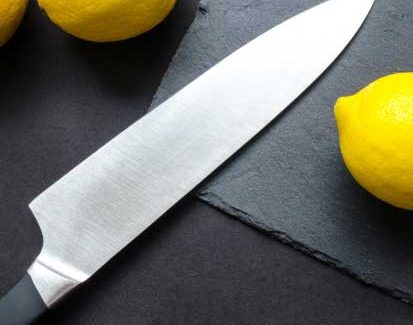

FOOD ITEMS
The importation of food items is strongly discouraged. Food products also require a detailed inventory for food and drug filings and duty payment. A food questionnaire form must be completed if importing food items (FDA).
A detailed inventory must be made at the time of packing in order for food and drug filings (FDA pre-notice filing is required) to be performed and proper duties and taxes to be paid on the shipment.
Pls. find here ‘Food.Listing’ for required filings with FDA & CBP as well a ‘FDA-Guide’ for food importations. Prohibited items include all kinds of fruit & vegetables, meats and meat byproducts (e.g. bouillon soups).
HIGH DUTIABLE ARTICLES
High dutiable articles (Cigars, tobacco, coffee, tea etc.) of all types or tobacco products. Articles of this nature will always be dutiable. Also, many of the individual States prohibit the importation of such articles into their respective States. Therefore, do not include these articles in your shipment unless you have verified that the State in which you will be taking delivery of the shipment will permit entry. If entry is permissible, the individual State will have additional documentation to be completed and will require payment of excise taxes. Payment of the State excise taxes must be proven to U.S. Customs before the shipment will be released at the port of entry. Contact us prior to shipping these items.
INHERITANCE
GOODS

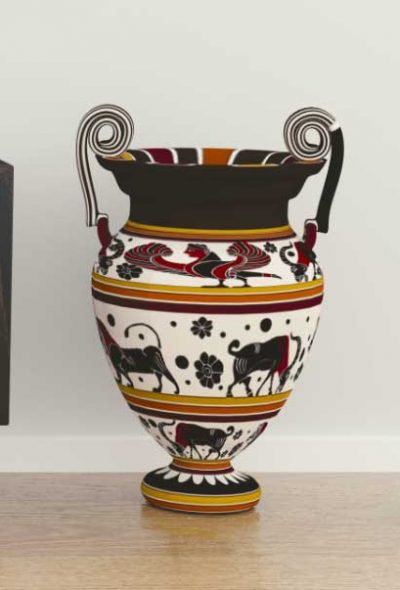
INHERITANCE GOODS
To import household effects (furniture, dishes, linens, libraries, artwork and similar household furnishings, etc.) for personal use, i.e. as inheritance goods, the items must have been available for personal use or used in a household where the owner of the goods was a resident for 12 months and is not intended for another person or for sale. Only shipments of used household goods and personal effects may enter the U.S. under informal entry. Inherited goods can be imported duty free if the following conditions are met:
- The items are over 100 years old and can be proven through documentation.
- Were available for use in the owner of the goods’ place of residence for 12 months prior to entry intothe United States. It does not have to be the 12 months prior to the inheritance (e.g., the items were in the owner of the goods’ parent’s house during the owner of the goods’ childhood).
ISF
An Importer Security Filing (ISF), also known as “10+2,” is a filing required by the CBP that documents importing information and details, as shipments pass from point to point. Importers who do not file the ISF properly prior to the shipment of their goods will be penalized (US$5,000 fine).
It is important for agents in the origin country to make sure the ISF is timely filed prior to the sailing of the vessel from the last foreign port for all ocean shipments to avoid penalties.
The ISF is processed by a licensed U.S. Customs Broker and requires the broker’s data sheet or form, one or two forms of the importer’s personal ID’s such as Passport and U.S. Visa (only for non-U.S. citizen’s) and a filled and signed Power of Attorney of the filing U.S. Customs Broker. Generic PoA’s cannot be accepted by us.
Pls. find here our ‘ISF Form’, ‘ISF Instructions’ and our broker’s ‘Power of Attorney’ for your reference and for the required ISF Filing.
LACEY ACT


LACEY ACT
The Lacey Act is a 1900 United States law that bans trafficking in illegal wildlife. In 2008, the Act was amended to include plants and plant products such as timber and paper. This landmark legislation is the world’s first ban on trade in illegally sourced wood products. When importing wooden furnishing as part of your household goods move, your inheritance, your fine art transport or personal commercial shipment, you might be required to file a Lacey Act form with the U.S. Dept. of Agriculture.
Pls. find here ‘Lacey.Act.DeclareShipmentChart’ and relevant USDA ‘USDA.Lacey.Act.SampleForm’.
MOTOR VEHICLES
Motor Vehicles must meet U.S. EPA and DOT requirements to be allowed entry into the United States. If vehicles do not meet U.S. EPA and DOT requirements we strongly advise against shipping to the United States. Do not ship any vehicle that does not meet U.S. requirements without contacting us prior to shipment. Required documents (in addition to documents required for household goods): U.S. Title, or Foreign Title, registration, and a letter from the manufacturer that the vehicle meets U.S. EPA and DOT standards.
If auto or motorcycle does not meet U.S. requirements, it must be converted, destroyed or re-exported. Not all vehicles can be converted. Conversion charges generally exceed $10,000.00 on autos and take 6 months to complete.
The following will be accepted to proof conformity by either:
- U.S. title / registration
- Letter of conformity from the manufacturer
- Importation of vehicle as part of a diplomatic posting / shipment
- Importation of vehicle as part of a foreign military posting / shipment
- Exemption as a model 25-year old vehicle as proven by the title (Old timer status)
- Copy of U.S. title or registration when previously registered in the USA (vehicles previously owned and shipped from the U.S. by the returning residents / owners of the goods)
- Completed EPA-3520-1, DOT, HS-7 and Customs 7501 forms (vehicles previously owned and shipped from the U.S. by the returning importer)
- Letter of permission from the EPA (non-residents importing vehicles as a tourist – max. 12 months)
Pls. find here general information ‘EPA.Procedures’, ‘DOT.Procedures’, ‘ICI.List’ for your reference and the required ‘EPA-3520-1’ and ‘DOT-HS-7’ forms.
‘PERSONAL’
COMMERCIAL
GOODS
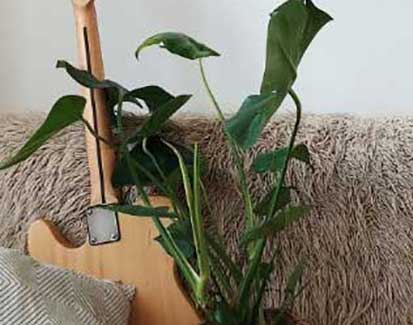

‘PERSONAL’ COMMERCIAL GOODS
Such as household effects (furniture, décor, libraries, artwork and similar household furnishings, etc.) that were purchased overseas for personal use will require duty and possibly taxes to be paid. A purchase (commercial or pro-forma) invoice and detailed inventory will be required for the import clearance. It is important for the owner of the goods to list those items as well in detail on the back side of the Customs Form 3299.
PROHIBITED ITEMS
Tuna, Drug paraphernalia, Haitian animal hide drums, Cuban cigars, Blank tapes and CDs from Iran, Absinthe, Counterfeit items or items inappropriately using a federally registered trademark, Products made from dog and cat fur, Flavored cigarettes, including cloves.
U.S. CUSTOMS
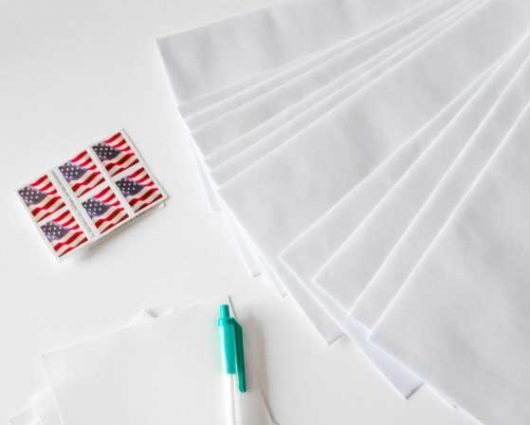
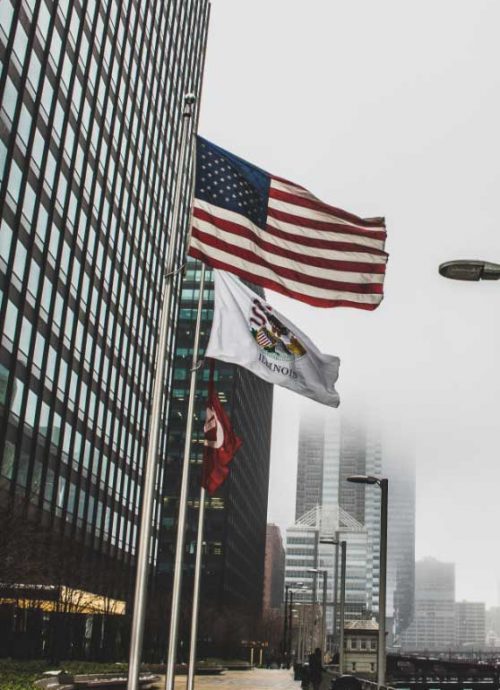
U.S. CUSTOMS AND BORDER PATROL (CBP)
The Government authority that will process the importation of all goods entering the United States. All shipments are subject to examination at the discretion of Customs officials. Do not indicate “packed by owner” (PBO) or miscellaneous descriptions on the detailed inventory. For duty-free clearance, the household goods must have been used at least 12 months in the foreign household prior to shipment from the origin country. Only shipments of used household goods and personal effects may enter the U.S. under informal entry. Customs and other government agencies can require a variety of different types of examinations that result in costs from USD $350-$1700 or more on a full container load (FCL) shipment. For shipments containing BBQ grills, garden tools, lawn mowers, outdoor furniture, playground equipment, scooters or any other items used outdoors, it is likely to be examined by U.S. Customs. If Customs finds outdoor items to be dirty or contain insects or snails, they will notify the U.S. Department of Agriculture. They may require the entire shipment to be cleaned, fumigated or frozen to clean potential bacteria or kill any invasive species and/or possibly the confiscation or destruction of such items. Owners of the goods should be forewarned that they are responsible to pay for the expense of this process, it can be very costly and it may result in damage to household goods. Informed decisions should be made regarding the import of items.
U.S. Customs may also order intensive exams on any shipments containing food products, medications or liquor/alcohol. The owner of the goods is responsible to pay for the exams and any damage incurred during inspections by Customs officials.
Pls. find here a detailed ‘CBP.Exam.Procedures’ guide for reference.
